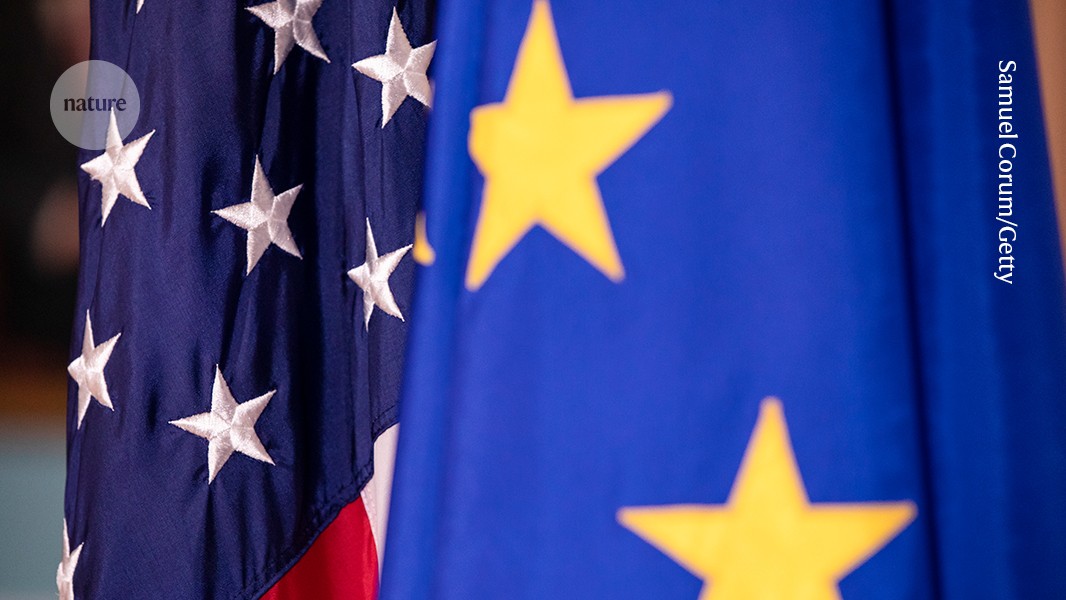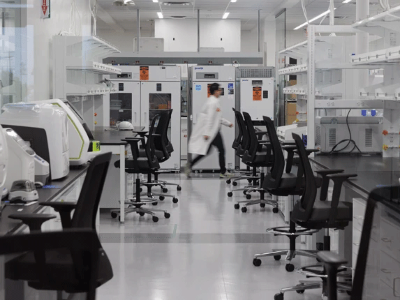You have full access to this article via your institution.
For decades, one country more than any other has been a magnet for global research talent. The United States became the world’s science and technology power by funding students and researchers not only from inside its borders, but from around the world, to study, experiment, innovate, found companies and scale them up. It’s an environment that has created both landmark scientific achievements and science-driven prosperity. As Marcia McNutt, president of the US National Academy of Sciences, has observed (M. McNutt Proc. Natl Acad. Sci. USA 21, e2321322120; 2023), it would be surprising if the United States didn’t win science Nobels in any given year.
Many countries have tried to emulate this model of science-led growth, and to stop the ‘brain drain’ of talent to better-resourced laboratories in the United States. Now, the actions of the US administration run the risk of slowing, if not halting, that trend, as the country seeks to devalue scientific evidence in policymaking and attack the structures supporting the US knowledge ecosystem, including universities, libraries and museums.
More than 1,600 people had responded to a Nature poll at the time of this editorial’s publishing. Of these, some 1,200 said that they are scientists working in the United States and are considering leaving the country. Of the almost 700 postgraduate students who responded, some 550 were considering leaving (see Nature https://doi.org/pffc; 2025). The respondents were self-selecting and so might not be representative of all US researchers. But the results are a strong indication of the despair that many scientists feel at the turmoil in US science.
75% of US scientists who answered Nature’s poll consider leaving
Many respondents to our poll cited Europe and Canada as favoured destinations. Some countries have lost little time in putting themselves forward. In a letter to the European Union’s research commissioner Ekaterina Zaharieva, 13 ministers for research, including those of the research powerhouses of France and Germany, urged the EU to seize the moment by “welcoming brilliant talents from abroad who might suffer from research interference and ill-motivated and brutal funding cuts”. Partly in response, the European Research Council is planning on doubling the amount of money it offers grantees relocating to the EU, to a maximum of €2 million (US$2.2 million) each.
The Netherlands’ government has asked its national research-funding council to establish a fund to attract top scientists who are looking to move because of the changing geopolitical climate. Universities in Belgium and France have advertised specific opportunities for US researchers.
This is a complicated issue, and all concerned should tread carefully and manage expectations. For Canada and Europe, there’s a clear opportunity to open doors to talented researchers trained in a highly successful culture of science, technology and entrepreneurship. At the same time, Europe also has some serious work to do to improve its own processes for commercializing innovation. Many researchers say that there is excessive regulation and bureaucracy, and a conservative attitude to risk-taking. Zaharieva is piloting an EU-wide innovation act. Among other things, it is designed to make it easier for the continent’s researchers and innovators to access private capital.
How Trump is following Project 2025’s radical roadmap to defund science
As Europe creates opportunities for US researchers, it must continue to show solidarity with all those — undoubtedly a large proportion — who will not be leaving. Countries that have long-standing ties with the United States must strengthen them. That will not be easy, because the US government is assessing whether international research partnerships comply with various executive orders. Navigating this will require creativity and leadership, including from researchers. The institutions of US science must be protected because damaging upheavals will have long-term impacts on the future of research and scholarship.
Researchers leaving their homes to gain knowledge in other countries — and with that, to progress knowledge in those countries — is centuries old. It is, in many ways, the story of science. For much of the past century, the broad direction of travel has been towards the United States, beginning in the lead-up to the Second World War. If that reverses, it will be a disaster for the United States, a setback for world science and arguably one of the greatest acts of scientific self-harm the modern world will have seen. We hope, in all sincerity, that it is a moment in history that will pass, and not a permanent change. Science must, and will, prevail.




